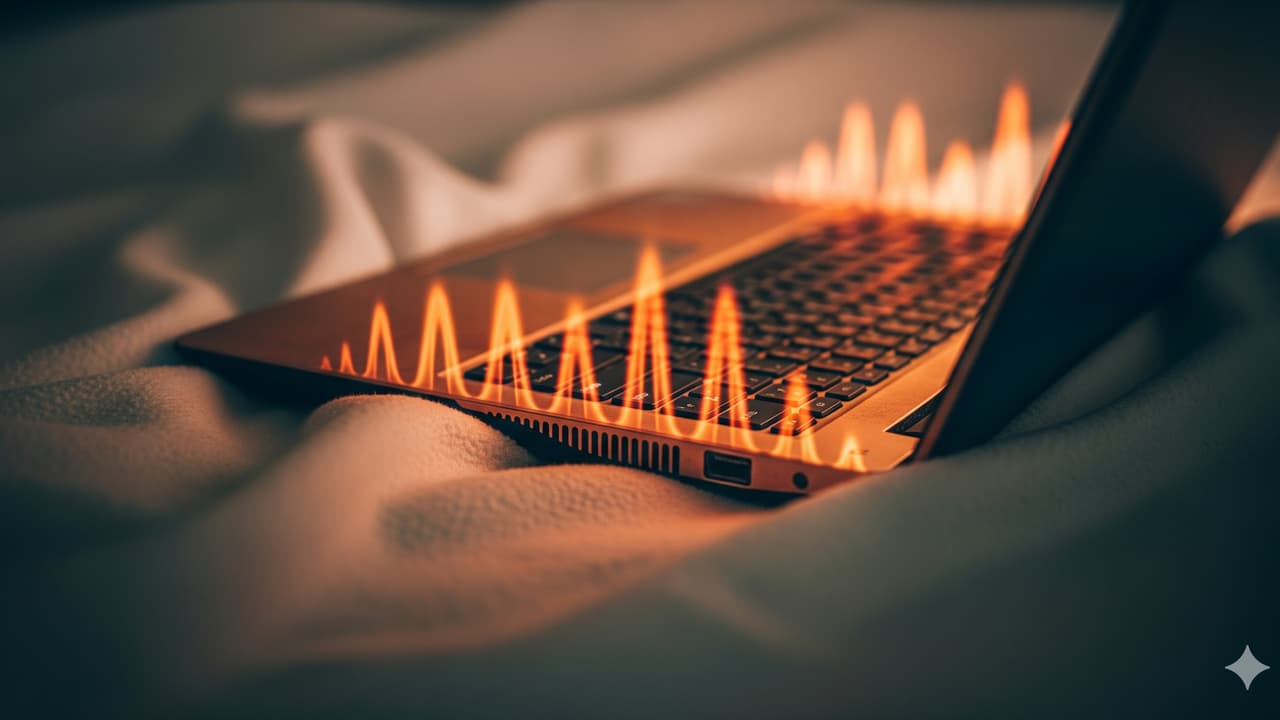Laptop overheating is a common issue caused by prolonged use, demanding tasks, and blocked vents. This can lead to reduced performance, hardware damage, and shortened lifespan.<img><p>A common problem faced by laptop users is overheating. During prolonged use, such as video calls, document preparation, research, video editing, or gaming, the battery drains quickly, and the processor is under stress. This is the main reason for laptop overheating.</p><img><p>Laptop overheating can reduce its performance, damage the hardware, and shorten the lifespan of your device. Here are 5 main reasons why your laptop overheats and what you can do to keep it cool.</p><img><p>Dust accumulation inside the laptop is a major problem. It blocks the vents and traps heat inside. This prevents the cooling system from working efficiently, leading to overheating.</p><p>Solution: Regularly opening and cleaning the laptop or using compressed air to clean the vents will help.</p><img><p>Running demanding software, games, or multiple applications simultaneously puts a strain on your laptop’s processor and graphics card. This causes the system to heat up quickly.</p><p>Solution: Closing unnecessary applications running in the background and using performance mode wisely will help protect your laptop.</p><img><p>Thermal paste transfers heat from the processor/GPU to the cooling fan. Over time, it dries out and loses its effectiveness. This is a major cause of overheating.</p><p>Solution: Reapplying thermal paste will significantly improve heat management.</p><img><p>If your laptop’s fan is damaged or running slowly, it won’t cool your system properly. This causes the laptop to overheat even during normal use.</p><p>Solution: Repairing or replacing a faulty fan is the best solution.</p><img><p>Using a laptop on a bed, pillow, or blanket blocks the vents underneath. Without proper ventilation, the device heats up quickly.</p><p>Solution: Always use your laptop on a hard surface. Or use a laptop cooling pad.</p>
